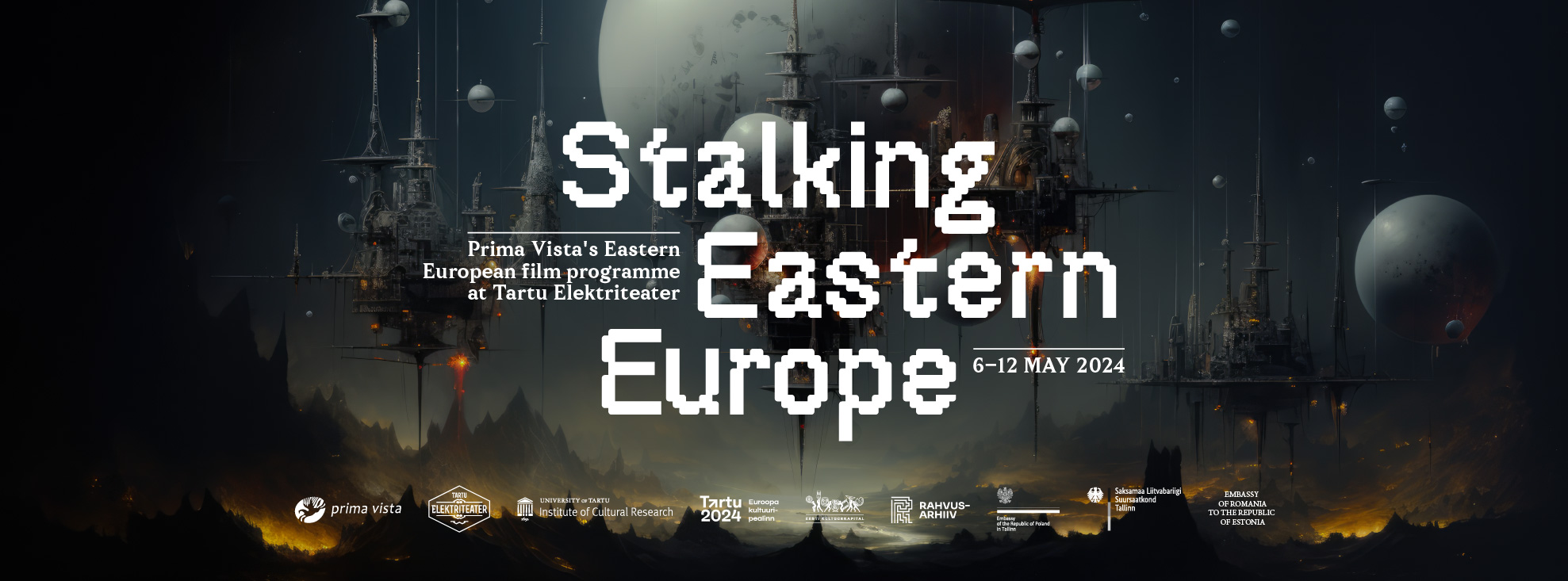Film programme Stalking Eastern Europe

From May 6th to 12th, 2024, Elektriteater will screen seven Eastern European science fiction films from the previous century, most of which are lesser-known around these parts.
The films are united by a seemingly similar fictional spacetime, the central theme of science fiction: outer space and foreign planets in the near or far future. Distant places, in the creation of which fantasies have been given free rein, doing so according to the convictions and opportunities of the era. As the universe is teeming with everything thinkable and unthinkable, so do these films; each comes from its own world. The genre of science fiction was as diverse on this side of the Iron Curtain as it was elsewhere.
The program includes the first screening in Estonia of the Polish cult film by director Andrzej Żuławski “On the Silver Globe” (1988), restored in 2016. Additionally, influential works like “Ikarie XB 1” (1963) and “Inquest of Pilot Pirx” (1978) are part of the lineup, along with curiosities such as East German films with strong sexual undertones, like “Love 2002” (1972).
In the context of Eastern European science fiction cinema, what makes the classic space-themed trope interesting is the fact that, while the theme of space conquests is usually associated with the colonial ambitions of major powers, including Russia – specifically their extension into extraterrestrial space, these films were (co)produced in states that, in one way or another, had fallen victim to Russian “communist” colonialism. Thus, in the films, two typically mutually exclusive perspectives intertwine that of the (fictional) coloniser and the (actual) colonised.
Speaking of the temporal dimension, it is important to emphasise that the future plays a significant role both in the conventions of the science fiction genre and in Soviet ideology, which invariably imagined it as a bright tomorrow. It’s fascinating to observe how the looming ideological and imaginary communist utopia interacts with dystopian impulses stemming from both the science fiction genre and the everyday life of the former Eastern bloc; how the societal-political background, varying in time and space, influences the representations of Future and Other – but just as much the Present and Self – found in these films. The time span of the films’ creation extends from the late 1950s to the late 1980s, thus spanning through the optimistic Thaw era and the depressing period of stagnation until the unexpectedly rapid collapse of the Soviet system. These moods are well-reflected in the selected films, naturally through the (distorted) mirror of science fiction. The range of expressive forms in the program’s films is equally broad: they include both art-house science fiction and modernist space fiction, postmodern (para)dystopias, as well as peculiar genre hybrids. For today’s audience, this viewing is both curiously entertaining and oddly thought-provoking. In addition to a fantasy journey into the future, it’s also a look back at a lost world.
Each screening will be enriched by guests, who will discuss the films and their themes. Among the guests are space psychologist Andres Käosaar, science fiction literature expert Jüri Kallas, and several renowned science fiction scholars, who will also be attending the international science fiction researchers’ conference “Transitions”, which takes place in Tartu at the same time.
“Stalking Eastern Europe” is part of the International Literary Festival Prima Vista: “Futures Better and Worse”, which is in the European Capital of Culture Tartu 2024 main programme. Stalking Eastern Europe has been produced in cooperation with the Film Archive of the National Archives of Estonia.
Program
- “The Sky Calls” (1959) Monday, 6th of May at 20.00
- “Ikarie XB 1” (1963) Tuesday, 7th of May at 18.00
- “Eolomea” (1972) Wednesday, 8th of May at 20.00
- “In the Dust of the Stars” + “Love 2002” (1976) Thursday, 9th of May at 20.00
- “Inquest of Pilot Pirx” (1978) Friday 10th of May at 19.00
- “On the Silver Globe” (1988) Saturday, 11th of May at 17.00
- “Estonian Psychedelic Animation” (1973) Sunday, 12th of May at 14.00
- “Delta Space Mission” (1984) Sunday, 12th of May at 16.00
Read more on the Elektriteater website elektriteater.ee.